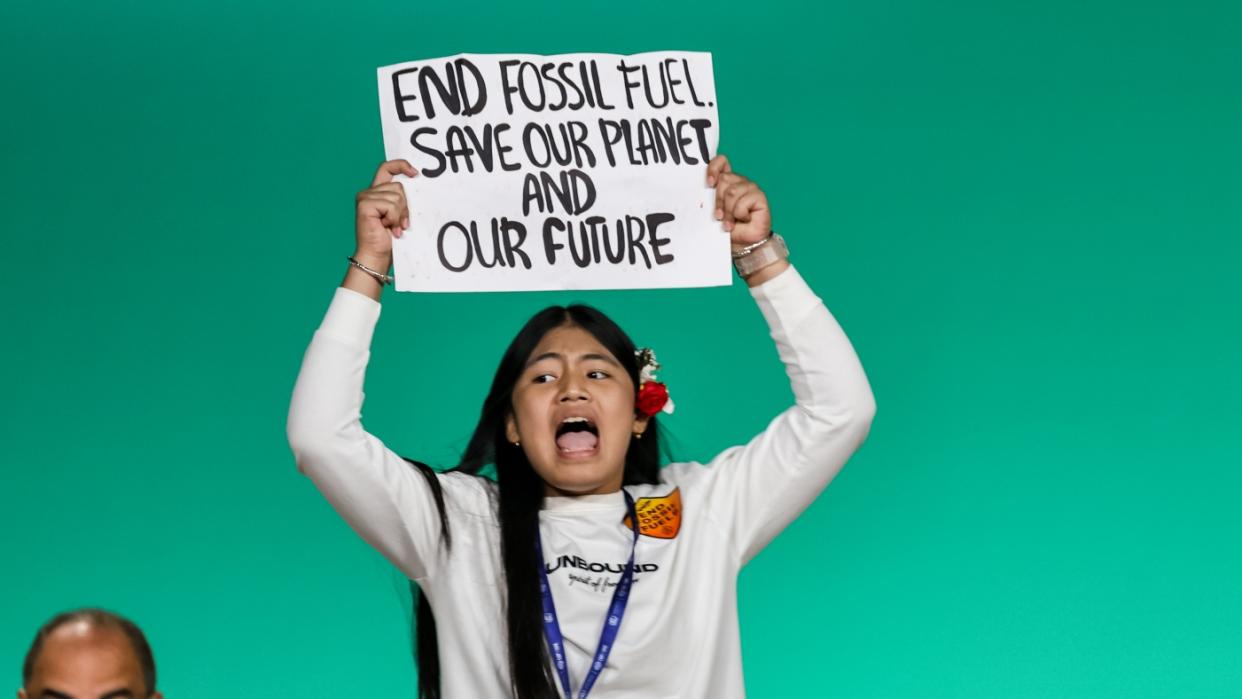Cop 28 verdict: are climate summits working?

The agreement struck at the Cop28 climate summit last week continued to divide opinion, as scientists and activists pored over its finer points.
Agreed by almost 200 countries after 14 days of negotiations in the United Arab Emirates, the deal won praise in some quarters for its commitment to a "transition away" from fossil fuels: it was the first time a UN climate summit text had called on all nations to reduce their use. But it was fiercely criticised by small-island states and eco- activists, who said that firmer commitments are required if the world is to hit the 1.5°C (2°C at most) temperature rise target.
The deal encourages all countries to set "ambitious" emissions targets within two years. It contains targets to triple global renewable energy capacity by 2030, and presses countries to boost investment in emissions-cutting technologies such as nuclear, low-carbon hydrogen and carbon capture and storage.
Cop28 'defied the pessimists'
The chances of real progress at this summit seemed slim, said The Economist. The fact that a world-leading petrostate was hosting the conference had led to warnings that it would be a "giant exercise in greenwashing"; tensions caused by the war in Gaza were a further bad omen. Yet in the event, this Cop "defied the pessimists2. A pledge by 50 oil firms to cut methane gas emissions suggested that there could be benefits to an "oil man running the show". And though European nations had hoped to agree to "phase out" fossil fuels, the agreement to "transition away" from them is a pragmatic "step forward".
The agreement is far from ideal, said the LA Times. "It is nonbinding and full of caveats and loopholes" – such as support for fledgling carbon capture technology and "transitional fuels" (code for natural gas) that will enable the continued burning of polluting hydrocarbons. Still, it's a milestone in the sense that there's now a "baseline global consensus" on the need to move away from fossil fuels. The next challenge is to build on that consensus by scaling up renewables.
The year the world 'gave up' on 1.5°C target?
We've now had 28 UN climate summits, each bigger than the last. There were 4,000 delegates in 1995, rising to fully 97,000 this year, said Mike Berners-Lee in The Independent. For all that time, it has been absolutely clear that the world needs to "wean itself off fossil fuels". Yet we're burning them faster than ever – and this deal won't stop us. Among its most glaring failings are its mealy-mouthed call for only "inefficient" fossil fuel subsidies to be phased out, and the fact that the "loss and damages" fund that it set up to help developing nations cope with climate change only attracted $700m in donations from the rich nations responsible for the bulk of historic emissions.
This summit may mark the point when the world "gave up" on hitting the 1.5°C target, said David Wallace-Wells in The New York Times. Scientists warn that any rises beyond that level could have disastrous impacts for humanity. Yet the lesson from Cop28 is that world leaders still simply aren't facing up to the need to avert this crisis.
The situation is not entirely hopeless, said Isabel Hilton in Prospect. Clean investment overtook fossil fuel investment last year and is growing by 30% annually; and the International Energy Agency predicts that global fossil fuel use will peak by 2030 – even in coal-addicted China.
The world isn't going to go green overnight, said Juliet Samuel in The Times.Much like nuclear, and unlike fossil fuels, renewables require very large up-front investments before they can start generating energy and making money – which leaves their operators badly exposed to high global interest rates. Getting more of them off the ground will therefore depend on our ability to keep energy costs – and thereby inflation – down. Sure, "climate worriers" will grouse that the deal's pledge to "transition away" from fossil fuels doesn't go far enough; but "a genuine transition" (rather than an enforced shutdown) is the only route to net zero that has a real chance of success. Why we needed a huge summit in Dubai to tell us that "is anyone's guess".
Next year's Cop29 will be held in Baku, Azerbaijan. The choice of another petrostate with a poor human-rights record as the next host was controversial; but Cop's rotating presidency shifts to eastern Europe next year, and other nations in the region backed Baku's bid this month.
How the "loss and damages" fund for poorer nations will work is not entirely clear, says The Conversation; but it will be administered by the World Bank, for a fee of 24% – meaning that almost one in every four dollars pledged will never make it to the countries in need.

